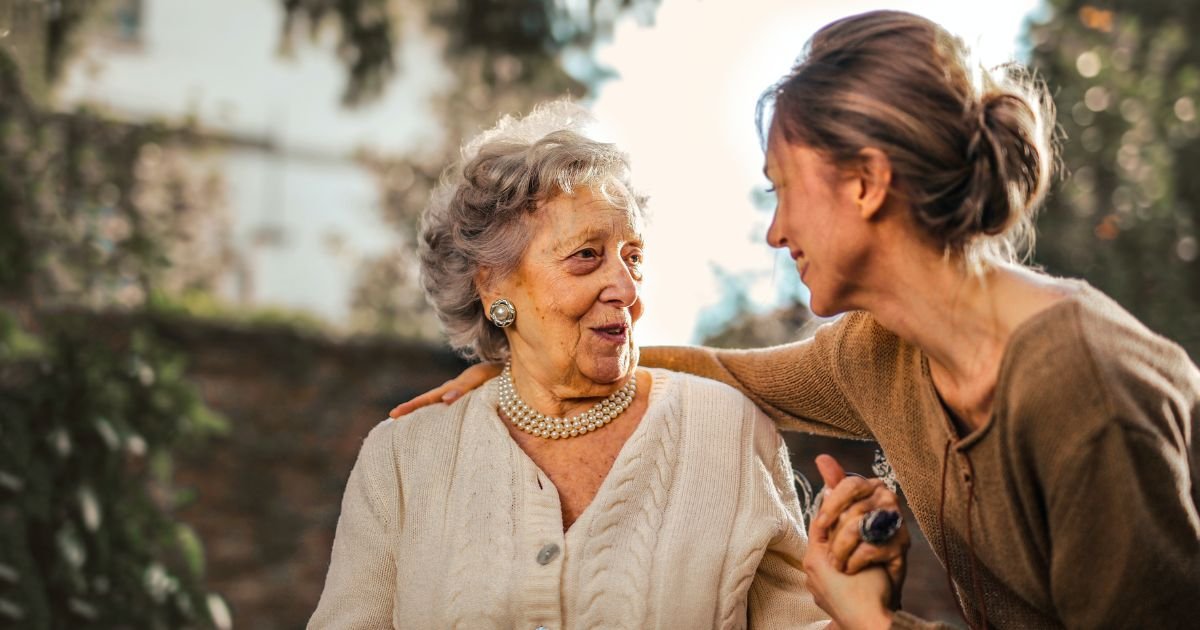Aging and Ageism
We are all diminished by the negative attitudes we carry about ageing and by the practice of ageism. Older people have experienced so much, made so many life-changing decisions, gained in their wisdom, and yet we often tend to give so little of our time and attention to them.
Our culture worships youth and beauty and all too often we fall into a negative judgement of the elderly, we denigrate people whose bodies have aged and dismiss the whole person based simply on their age and the way they look.
I was delivering the eulogy at a recent funeral, and it occurred to me how little we usually know of each other. We have a few snapshot images of the other person, and we think we know them. At the end of the funeral service a number of people came up to me and remarked that they realized how little they knew the person who had died, and now wished they had known him better. So, what about friends? How well do we know them? It strikes me how little I really know of my friends.
Recently I saw an interview with Oprah Winfrey, and she was talking about the actor Sidney Poitier who had passed recently. She said of all the many, many people she had interviewed over the course of her career, he was the most ‘present’ to others. He engaged each person on the set and encouraged them to talk about themselves. His genuine curiosity made a deep impression on her and everyone who met him.
So, the question arises, how do we get to know someone more fully? One answer is to listen more deeply, to hear more of what they are saying and to listen behind the words, and when we do not understand something, to ask and not let it just pass by.
When we listen deeply, more carefully and with heart to the sound of an elderly person’s voice, remaining open to the depth of their lived experience, we can begin to know that person more fully. Why not expand our conversations now to know each other more deeply without judgment, with genuine interest, respect and celebrate who they are and what they have gained through lived experience.
Age Discrimination and Ageism
Ageism is a term coined by the gerontologist and psychiatrist Dr. Robert N. Butler. The term, “ageism” refers to a specific form of discrimination. For example, if someone assumes that because an elderly person is having trouble walking they have probably lost their mental capacity too, that is an example of ageism. But ageism isn’t confined to beliefs and attitudes about others, a person can victimize themselves with ageism.
Self-Targeted Ageism
You may have formed ageist views about your own abilities, assuming that since you are “old” you can no longer learn new skills, gain new understanding or become more physically fit.
As people get older and begin to see themselves as “old” or “elderly” they often begin to “act their age”. In many cases this is the result of self-targeted ageism in which one’s biases are turned inward, and we become the victims of our own negative beliefs about getting older. In light of this it may be interesting to ask oneself, “How will my own attitudes about ageing work against me as I get older?”
Elder Discrimination and Abuse
Some consequences of discrimination and ageism are:
Feeling like dignity and rights are not being respected
Reduced opportunities to interact and contribute
Being dismissed and undervalued
Reduced quality of life
Feelings of shame, anger, sadness
The Human Rights Commission Study ‘What’s age got to do with it?” 2021, found ageism to be associated with poorer health outcomes, increased risk of social isolation and greater financial insecurity.
In cases of elder abuse, the mistreatment is usually by someone the elder person knows, often a family member or friend. We need to be aware that not considering or ignoring an elder person’s needs is deliberately causing them harm. If you suspect or know of someone who is suffering from elder abuse you can reach out to a non-profit organization such as, Helpguide or visit their website for more information:
To report abuse you can contact the Australian Human Rights Commission:
Changing our own Attitudes and Beliefs
It is useful to challenge our own attitudes about ageism, they affect how we live and how fully we live as we age and how we treat others. In the above survey by the Human Rights Commission, more than 50% of respondents said they had experienced people making jokes about age and that such jokes are more socially acceptable than jokes about gender. 83% of those surveyed said ageism is a problem.
The media’s role in disseminating stereotypical portrayals of people of all ages also has an impact. Age is not the problem, ageism is. What if we were to see everyone as Sacred, including ourselves? When we hurt another, we are also hurting ourselves.
Some ideas about reducing ageism:
Be self-aware and know your rights. We are all aging. How do we want to be treated? See the Age Discrimination Commissioner’s website to clarify your rights.
Speak out in a polite but firm manner when you see incidents of ageism.
Respect everyone’s individuality and differences rather than prejudge or make assumptions based on stereotypes.
Mix with people of all ages. Recent television programs about bringing together older people with the youth and teenagers have revealed some of the benefits of interactions between age groups.
As an older person don’t ask for help until you need it. Continue to go out and participate. Maintain your relationships even if it is by phone. Learn to use technology. Call upon home care to maintain your independence.
Be positive. We can change our view of aging and see it as positive.
Develop new skills in managing anxiety, fear, anger. For example, I have witnessed people managing anxiety through mindful breathing practices with little coaching. The technique is easy to master and just needs to be practiced regularly to deepen the effect.
Turning Despair Around
Considering past challenges in our life – how do we think about those now? Are we focused upon guilt, shame or failure or can we recognise how we grew and developed? Knowing that only we can decide when our familiar attitudes, beliefs and behaviours need a change, only we can make new life affirming choices that improve our outlook and circumstances.
Self-Reflection
What have been the growing points in my life – the events or times when I turned around to something more, something new?
Deep within, what did I really want for myself (and others) in this situation or experience? What did I really want? For example, if someone judged me, what I really wanted was to be treated with dignity and love.
Our thoughts and words have the power to be used to make a positive impact. They can be our doorway to a brighter outlook and open new opportunities in our relationships with others and change our beliefs about aging and ageism.
You are invited to experience the Rainbow Terraces Meditation with Gay Vickers each week on Zoom








The words we speak have power. They change the brain, the body and our relationships. Words have an energy, and the power to help, to hinder, to inspire, to hurt, to create a bond, to alienate, to enlighten, or humiliate.